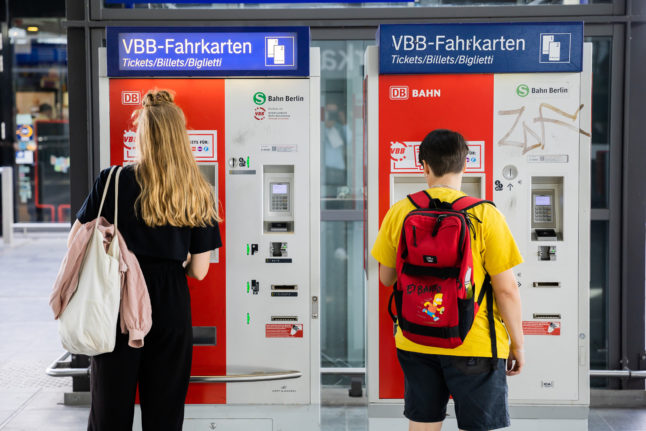A month and a half after Germany’s €9 ticket offer came to an end, federal and state ministers are meeting to discuss a new travel deal that could launch next year.
The government has been under pressure to find a successor to the ticket since the three-month deal ended at the start of September, with climate groups and other activists pushing for another eco- and budget-friendly option.
Transport Minister Volker Wissing (FDP) wants to work with state transport ministers on a new nationwide ticket that would be launched by January 2023. This would be valid on local transport networks across Germany and is likely to cost somewhere between €49 and €69 per month.
A working group with representatives from the state and federal governments has been fleshing out concrete proposals for the pricing and structure of the ticket, with the results set to be announced after the transport ministers’ conference on Thursday.
However, there are still fierce disagreements between the parties over where the funding for the ticket should come from – and how much it should be.
The federal government has pledged to provide states with an additional €1.5 billion per year to help pay for the ticket, provided regional governments agree to match this funding.
This is on top of the €9.4 billion given to states out of the federal budget to order transport services from local providers.
READ ALSO: Can German ministers agree on funding for a €9 ticket follow-up?
States have agreed to cough up at least €1.5 billion for the ticket next year, but are calling for an additional €1.65 in both 2022 and 2023 to cover spiralling energy prices and the cost of expanding networks into rural areas.
“Where there is no train, where there is no bus, even the cheap ticket is of no use to us,” said Brandenburg’s head of department Guido Beermann (CDU).
According to reports in the regional Rheinische Post, transport ministers are currently leaning towards a €49 ticket model that could be used on local transport networks all over Germany.
This so-called “Climate Ticket” could be bought digitally or at ticket machines, and much like the €9 ticket it would be personalised and non-transferrable.
Other proposals for a €9 ticket successor include a €29 monthly ticket. This is the pricing model favoured by environmental organisation Greenpeace and the Federal Consumer Rights’ Centre, among others.
According to Greenpeace calculations, a €29 ticket would cost the government the same as a €49 ticket in subsidies since sales of the €29 would likely be twice as high. For its research, Greenpeace analysed multiple surveys evaluating consumers’ willingness to buy different types of tickets.
The state of Berlin has recently launched its own €29 ticket to bridge the gap between the expiration of the €9 ticket and the introduction of the new deal in January. The ticket is available for subscription holders and is only valid in zones A and B of the Berlin transport network.
Meanwhile, German Environmental Aid has floated the idea of a €365 annual ticket that would set the government back around €4 billion. In addition, the climate group is calling for increased investment in expanding and improving the local transport network.
READ ALSO: EXPLAINED: How will Berlin’s new €29 transport ticket work?



 Please whitelist us to continue reading.
Please whitelist us to continue reading.
Member comments